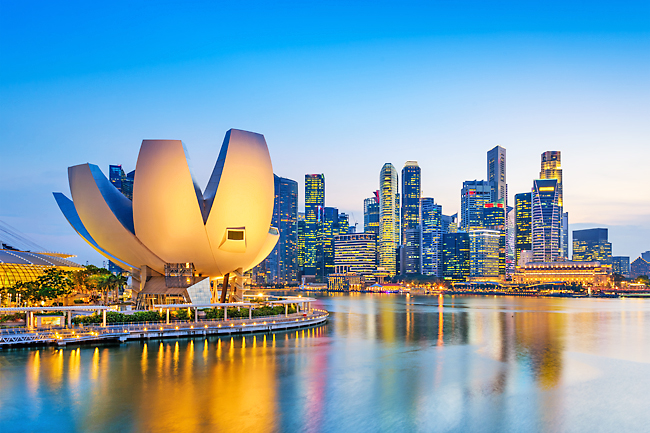Contributed by Joo-ok Lee, Head of Asia-Pacific, World Economic Forum
The COVID-19 pandemic caused global investment activities to fall – due to economic uncertainties, lockdowns, supply chain disruptions and postponement of investment by multinational enterprises.
ASEAN also recorded a decline in foreign direct investment (FDI) in 2020 to USD137 billion, down from its highest-ever inflow of USD182 billion in 2019 when it was the largest recipient of FDI in the developing world.
Despite the decline, ASEAN remained an attractive investment destination. The region’s share of global FDI rose from 11.9 per cent in 2019 to 13.7 per cent in 2020, while the intra-Asean share of FDI in the region increased from 12 per cent to 17 per cent.
And the future looks bright. According to the first-of-its-kind ASEAN Development Outlook (ADO) report, the total combined GDP of 10 ASEAN countries in 2019 was valued at USD3.2 trillion – making ASEAN the fifth-largest economy in the world, well on track to become the fourth largest by 2030.
With a total population of about 700 million people, 61 per cent are under the age of 35 – and the majority of young people are embracing digital technologies into their daily activities.
The outlook remains promising, with coordinated pandemic response efforts and several key developments under way in the region.

COORDINATED RESPONSES
ASEAN members took coordinated actions to respond to pandemic challenges, such as the Hanoi Plan of Action on Strengthening ASEAN Economic Cooperation and Supply Chain Connectivity in Response to the COVID-19 Pandemic.
Members collaborated on the flow of essential goods and enhanced the resilience of its supply chains and sourcing in the region.
This was critical given how the concentration of FDI in ASEAN is connected to global value chain activities or regional production networks.
To support recovery and resilience building, ASEAN launched the COVID-19 ASEAN Response Fund and cooperated with external partners on the Asean Centre for Public Health Emergencies and Emerging Diseases (ACPHEED) to enhance regional health security and to sustain Asean preparedness and resilience in the face of public health emergencies.
REGIONAL COMPREHENSIVE ECONOMIC PARTNERSHIP
The ASEAN-led Regional Comprehensive Economic Partnership (RCEP) Agreement came into force on January 1, 2022 for Australia, Brunei Darussalam, Cambodia, China, Japan, Lao PDR, New Zealand, Singapore, Thailand and Vietnam.
With it, ASEAN resolves to keep markets open while strengthening regional economic integration towards post-pandemic inclusive recovery.
RCEP is the biggest regional free trade agreement in existence and will cover 30 per cent of global GDP and 30 per cent of the world population in addition to accounting for over one-quarter of global trade in goods and services.
Furthermore, non-RCEP companies can also take advantage of RCEP benefits by locating and operating in the region.
Considering that 40 per cent of investment in ASEAN comes from RCEP members – of which 24 per cent comes from non-ASEAN RCEP member countries – opportunities exist to boost more sustainable FDI in the region, particularly value chain-linked FDI taking into account the benefits of RCEP and the recently concluded Asean Investment Facilitation Framework (AIFF).
DIGITAL TRANSFORMATION
The recent adoption of the Consolidated Strategy on the Fourth Industrial Revolution (4IR) for ASEAN and the ASEAN Agreement on Electronic Commerce will advance the region’s push for digital transformation and private investment in digital infrastructure development (5G networks and data centres), cloud computing, cybersecurity, artificial intelligence and smart manufacturing.
The ASEAN Comprehensive Recovery Framework (ACRF) identified digital connectivity as a priority to facilitate regional connectivity and economic recovery.
This correlated to the findings of a survey of 86,000 people from six ASEAN countries conducted by the World Economic Forum (WEF) and Sea, which found respondents (including business owners) who were “more digitalised” tended to be more economically resilient during the pandemic.
However, the survey also found several barriers to digital adoption including affordable access to quality internet and digital devices.
The Forum is addressing this global issue through initiatives like the EDISON Alliance, which mobilises multi stakeholder collaboration to expand digital access to more than one billion people by 2025.
The ASEAN Digital Integration Framework will also support the ACRF. The Forum has been complementing ASEAN efforts through the Digital ASEAN Initiative on data policy, digital skills, e-payments and cybersecurity.
The Forum’s Centre for the Fourth Industrial Revolution Network, which brings stakeholders together to maximise the benefits of technology, have shown that public-private cooperation is instrumental for businesses and government to develop cooperative ecosystems to advance digital transformation and innovation.
Governments have an important role in incentivising investments in research and development, while the private sector will drive Industry 4.0 transformation through investing in digitalisation of manufacturing, using advanced manufacturing solutions, building smart factories and establishing research and development facilities, technology hubs, and centres of excellence in the region.
Embracing 4IR also requires a parallel commitment to environmental sustainability.
This can establish new forms of efficiency wherein sustainability and competitive excellence are not only compatible, but, in fact, intertwined.
A green future does not only benefit the well-being of the next ASEAN generation but is also good for ASEAN economically, boosting the region`s competitiveness in attracting green FDIs to address new climate-related investment and trade measures adopted by developed economies.
ASEAN has shown strong commitment towards climate change and global sustainability efforts.
However, greater commitment to environmental stewardship is also required from the private sector to design corporate purchasing commitments that can drive investment in green technologies and market demand for low-carbon tech.




